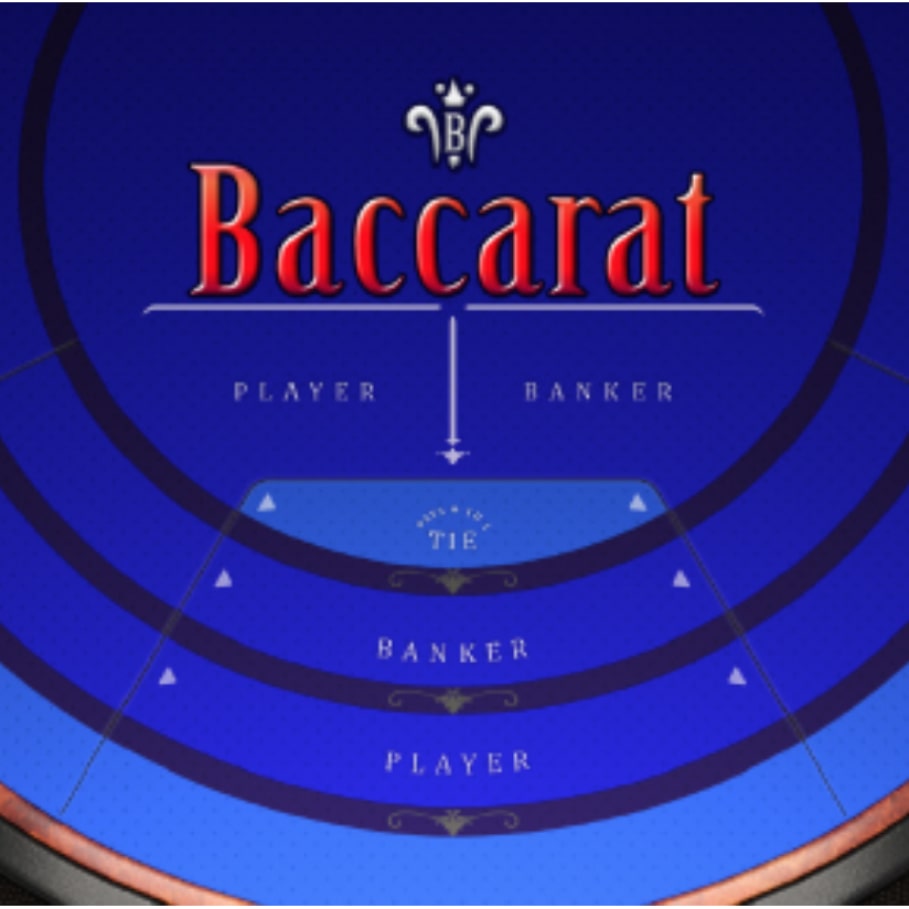Tips To Improve Your Online Poker Tournament Strategy - Adda52
Playing an online poker tournament is a great way to test your game knowledge and skills for earning money. Here are some strategies to win the prize pool.  Author
Author
Bhupendra Chahar
Table of Contents

Introduction
This article is designed to boost your gameplay across all stages of a poker tournament. Starting with early-stage strategy, we delve into the importance of playing conservatively, targeting weaker players, and building your chip stack with minimal risk. As the tournament moves into the middle stages, we examine adjusting your pre-flop strategy, the significance of blinds and antes, and strategies for survival and accumulation. Approaching the late stages, we focus towards aggressive play, managing blinds, and opponent dynamics. Lastly, at the final table, we explore strategies for different stack sizes and the psychological aspects of the game. Whether you are a novice or an experienced player, this article will help you with the knowledge to navigate the complexities of poker tournaments successfully.
Tips for Early-Stage Poker Tournament Strategies
In the early stages of a poker tournament, the best strategy is to start playing conservatively. This approach involves being selective with the hands you choose to play, focusing on strong starting hands to avoid unnecessary risk. The goal during this phase is to gradually build your chip stack through cautious and calculated play rather than attempting large, risky bluffs or calls.
It is the right time to identify and target weaker players by isolating the limps with a wide range of hands. 3-betting against their raises when you are in a good position and raising more frequently when they are in the blinds. The idea is to maximise your profits from post-flop pots with these players since they are prone to making mistakes after the flop. Putting pressure on passive players, who avoid engaging in pots, can also be beneficial, except when they are likely to hold a strong hand.
Since there are no antes in the early stages of a tournament, aggressive play or bluffing strategies with weak hands like suited connectors are unnecessary. Instead, focus on taking advantage of weak players’ mistakes as a safer way to increase your chip stack. By maintaining a solid foundation at the start, you lay the groundwork for deeper runs into the tournament, where the stakes are higher and the potential rewards are greater.
Tips for Middle-Stage Poker Tournament Strategies
The blinds and antes increase in the middle stages, making the poker tournaments more challenging. Here is a straightforward strategy to navigate this stage:
- Adjust Your Pre-flop Strategy: As blinds increase, you must start playing more aggressively during pre-flop than in the early stages. It is time to loosen your starting hand requirements slightly for open raising, especially in position.
- Look for All-In with Lower Stacks: Be mindful of your stack size with respect to the blinds and adjust your strategy accordingly. If your stack is getting short (around 20 blinds or less), look for opportunities to go all-in pre-flop to double up.
- Steal Blinds and Antes: Since blinds and antes are bigger, winning them can significantly boost your stack. Try to steal blinds from tighter players who are less likely to fight back. Position is key here; steals from late positions can be very profitable.
- Survive and Accumulate: Your goal in the middle stages is to accumulate enough chips to set yourself up for a deep run while ensuring you survive till the later stages of the tournament.
- Balance your Betting strategy around the Bubble: The “bubble” is the phase before players get into the money. Players should tighten their play to ensure they end up in the money. At the same time, others will take advantage of this and become more aggressive. Hence, you must balance your strategy based on your stack size and observation of other players.
Following these strategies can help you smoothly navigate the middle stages of a poker tournament and better prepare you for the later stages.
Tips for Late-Stage Poker Tournament Strategies
In the later stages of a poker tournament, the strategy pivots towards more aggressive play. As competition intensifies and blinds along with antes climb, careful yet assertive decisions become crucial. Players generally narrow their hand selection, focusing on exploiting the shorter stacks and adeptly managing the increased blinds and antes. Being mindful of your position is the key, as it can significantly impact your approach and decision-making during these rounds.
It is essential to understand the changing prize structure at this stage and how it influences opponents’ gameplay behaviour. The prize jumps become more substantial, leading some players to tighten their play to secure a higher payout, while others might take aggressive risks to build their stack. Adjusting your strategy to the specific dynamics of the final table, including individual player tendencies, becomes increasingly important. The cornerstone of a successful strategy in the late phases of a tournament is the balance between aggressive and cautious gameplay.
Tips for Final Table in Poker Tournaments
Navigating the final table in a poker tournament requires a nuanced strategy, combining cautious play with calculated aggression. Understanding the dynamics at play, including the varying stack sizes and the psychological pressures impacting your opponents. For players with shorter stacks, the strategy leans toward looking for opportunities to double up by going all-in on strong hands. In contrast, medium stack holders should balance between aggression towards shorter stacks by pressurising them and taking caution against larger ones. Players with large stacks should apply pressure, but they must do so judiciously to avoid unnecessary risks. Being in a late position can offer significant strategic benefits in the final table, allowing you to pressure opponents to act before you.
Understanding the implications of the Independent Chip Model (ICM) is crucial, as it highlights how tournament payout structures influence decision-making, particularly in situations where survival is more important than chip accumulation. Sometimes, the value of surviving one more spot can outweigh the risk of playing for doubling your stack. The final table can be quite challenging. Maintain emotional control and focus on the final table while making logical decisions.
By employing these strategies and staying adaptive, attentive, and calm, you can navigate the complexities of the final table with greater confidence and success.
Frequently Asked Questions
How do you win in a poker tournament?
To improve your gameplay and increase your odds of winning, we recommend following these pointers:
- Start with low-stakes tournaments
- Adopt a tight but aggressive playing style
- Adjust your strategy based on your table dynamics
- Manage your chip stack effectively
- Make use of position to your advantage
- Bluff strategically
- Remain focused and patient throughout the game
- Learn to read your opponents
- Continuously study and reflect on your game
What mistakes should you avoid in poker tournaments?
Players should avoid playing too many hands and ignoring the need to adjust their strategy based on the tournament stage or table dynamics.
What does “overvaluing hands” mean in poker?
In poker, “overvaluing hands” refers to a common mistake in which a player gives too much strength to their hand. It often leads to overly aggressive betting or calling in situations where caution would be advisable.
Conclusion
Mastering poker tournaments requires flexibility, keen observation, and strategic aggression at different game phases. From the conservative beginnings, targeting the less experienced, to adjusting your play amidst increasing blinds and antes, to the tactical aggression in the later stages, every phase demands separate strategies for success. The final table challenges even seasoned players to leverage psychological insights and adapt to rapidly changing dynamics. Players can significantly enhance their performance when equipped with these strategies, turning good plays into winning tournament strategies.
 Read Full BioAuthorBhupendra Chahar
Read Full BioAuthorBhupendra Chahar
Poker Player @ Deltatech Gaming Limited
Bhupendra Chahar is a seasoned poker player with over 10+ years of experience. He has competed in numerous tournaments, including DPT, and deeply understands poker strategy and game theory. Bhupendra Chahar is also a passionate writer and has contributed to different publications. His articles offer valuable insights into poker and online card games.
Related TagsPokerPrevious Article
Poker Tournament Rules
Next Article
Poker Stars Asia Poker League (APL)
Related Articles
Poker Stars Asia Poker League (APL)
History Asia Poker League (APL) is a chain of poker online game tournaments, specifically…
Last Updated: 14 Aug, 2024 Sit and Go (SNG) Poker Tournament
This article covers everything you need to know about sit-and-go poker (SNG). We…
Last Updated: 27 Sep, 2024 Texas Holdem - Tournament Formats
RE-ENTRY TOURNAMENT A re-entry tournament allows you to buy another…
Last Updated: 14 Aug, 2024 Tournament Schedule
Coming soon……
Last Updated: 14 Aug, 2024 Tournament Payout Structure
The payout structure at Adda52.com tends to benefit the winner though it may vary…
Last Updated: 14 Aug, 2024 World Poker Tour (WPT)
Introduction This article will describe everything about the World Poker Tour,…
Last Updated: 14 Aug, 2024 World Series of Poker (WSOP)
Introduction World Series of Poker is an annual poker event organized in the…
Last Updated: 4 Sep, 2024 Amateur Poker League (APL)
History Amateur Poker League (APL) is a poker league owned and run by World Poker…
Last Updated: 27 Sep, 2024 Asian Poker Tour (APT) - Asian Series
Introduction Asian Poker Tour, also referred to as APT is a popular poker event…
Last Updated: 14 Aug, 2024 Champions Poker League (CPL)
History The Champions Poker League or CPL is UK based premiere pub poker league…
Last Updated: 14 Aug, 2024 This article is designed to boost your gameplay across all stages of a poker tournament. Starting with early-stage strategy, we delve into the importance of playing conservatively, targeting weaker players, and building your chip stack with minimal risk. As the tournament moves into the middle stages, we examine adjusting your pre-flop strategy, the significance of blinds and antes, and strategies for survival and accumulation. Approaching the late stages, we focus towards aggressive play, managing blinds, and opponent dynamics. Lastly, at the final table, we explore strategies for different stack sizes and the psychological aspects of the game. Whether you are a novice or an experienced player, this article will help you with the knowledge to navigate the complexities of poker tournaments successfully.
Tips for Early-Stage Poker Tournament Strategies
In the early stages of a poker tournament, the best strategy is to start playing conservatively. This approach involves being selective with the hands you choose to play, focusing on strong starting hands to avoid unnecessary risk. The goal during this phase is to gradually build your chip stack through cautious and calculated play rather than attempting large, risky bluffs or calls.
It is the right time to identify and target weaker players by isolating the limps with a wide range of hands. 3-betting against their raises when you are in a good position and raising more frequently when they are in the blinds. The idea is to maximise your profits from post-flop pots with these players since they are prone to making mistakes after the flop. Putting pressure on passive players, who avoid engaging in pots, can also be beneficial, except when they are likely to hold a strong hand.
Since there are no antes in the early stages of a tournament, aggressive play or bluffing strategies with weak hands like suited connectors are unnecessary. Instead, focus on taking advantage of weak players’ mistakes as a safer way to increase your chip stack. By maintaining a solid foundation at the start, you lay the groundwork for deeper runs into the tournament, where the stakes are higher and the potential rewards are greater.
Tips for Middle-Stage Poker Tournament Strategies
The blinds and antes increase in the middle stages, making the poker tournaments more challenging. Here is a straightforward strategy to navigate this stage:
- Adjust Your Pre-flop Strategy: As blinds increase, you must start playing more aggressively during pre-flop than in the early stages. It is time to loosen your starting hand requirements slightly for open raising, especially in position.
- Look for All-In with Lower Stacks: Be mindful of your stack size with respect to the blinds and adjust your strategy accordingly. If your stack is getting short (around 20 blinds or less), look for opportunities to go all-in pre-flop to double up.
- Steal Blinds and Antes: Since blinds and antes are bigger, winning them can significantly boost your stack. Try to steal blinds from tighter players who are less likely to fight back. Position is key here; steals from late positions can be very profitable.
- Survive and Accumulate: Your goal in the middle stages is to accumulate enough chips to set yourself up for a deep run while ensuring you survive till the later stages of the tournament.
- Balance your Betting strategy around the Bubble: The “bubble” is the phase before players get into the money. Players should tighten their play to ensure they end up in the money. At the same time, others will take advantage of this and become more aggressive. Hence, you must balance your strategy based on your stack size and observation of other players.
Following these strategies can help you smoothly navigate the middle stages of a poker tournament and better prepare you for the later stages.
Tips for Late-Stage Poker Tournament Strategies
In the later stages of a poker tournament, the strategy pivots towards more aggressive play. As competition intensifies and blinds along with antes climb, careful yet assertive decisions become crucial. Players generally narrow their hand selection, focusing on exploiting the shorter stacks and adeptly managing the increased blinds and antes. Being mindful of your position is the key, as it can significantly impact your approach and decision-making during these rounds.
It is essential to understand the changing prize structure at this stage and how it influences opponents’ gameplay behaviour. The prize jumps become more substantial, leading some players to tighten their play to secure a higher payout, while others might take aggressive risks to build their stack. Adjusting your strategy to the specific dynamics of the final table, including individual player tendencies, becomes increasingly important. The cornerstone of a successful strategy in the late phases of a tournament is the balance between aggressive and cautious gameplay.
Tips for Final Table in Poker Tournaments
Navigating the final table in a poker tournament requires a nuanced strategy, combining cautious play with calculated aggression. Understanding the dynamics at play, including the varying stack sizes and the psychological pressures impacting your opponents. For players with shorter stacks, the strategy leans toward looking for opportunities to double up by going all-in on strong hands. In contrast, medium stack holders should balance between aggression towards shorter stacks by pressurising them and taking caution against larger ones. Players with large stacks should apply pressure, but they must do so judiciously to avoid unnecessary risks. Being in a late position can offer significant strategic benefits in the final table, allowing you to pressure opponents to act before you.
Understanding the implications of the Independent Chip Model (ICM) is crucial, as it highlights how tournament payout structures influence decision-making, particularly in situations where survival is more important than chip accumulation. Sometimes, the value of surviving one more spot can outweigh the risk of playing for doubling your stack. The final table can be quite challenging. Maintain emotional control and focus on the final table while making logical decisions.
By employing these strategies and staying adaptive, attentive, and calm, you can navigate the complexities of the final table with greater confidence and success.
Frequently Asked Questions
How do you win in a poker tournament?
To improve your gameplay and increase your odds of winning, we recommend following these pointers:
- Start with low-stakes tournaments
- Adopt a tight but aggressive playing style
- Adjust your strategy based on your table dynamics
- Manage your chip stack effectively
- Make use of position to your advantage
- Bluff strategically
- Remain focused and patient throughout the game
- Learn to read your opponents
- Continuously study and reflect on your game
What mistakes should you avoid in poker tournaments?
Players should avoid playing too many hands and ignoring the need to adjust their strategy based on the tournament stage or table dynamics.
What does “overvaluing hands” mean in poker?
In poker, “overvaluing hands” refers to a common mistake in which a player gives too much strength to their hand. It often leads to overly aggressive betting or calling in situations where caution would be advisable.
Conclusion
Mastering poker tournaments requires flexibility, keen observation, and strategic aggression at different game phases. From the conservative beginnings, targeting the less experienced, to adjusting your play amidst increasing blinds and antes, to the tactical aggression in the later stages, every phase demands separate strategies for success. The final table challenges even seasoned players to leverage psychological insights and adapt to rapidly changing dynamics. Players can significantly enhance their performance when equipped with these strategies, turning good plays into winning tournament strategies.
Poker Stars Asia Poker League (APL)
History Asia Poker League (APL) is a chain of poker online game tournaments, specifically…
Last Updated: 14 Aug, 2024 Sit and Go (SNG) Poker Tournament
This article covers everything you need to know about sit-and-go poker (SNG). We…
Last Updated: 27 Sep, 2024 Texas Holdem - Tournament Formats
RE-ENTRY TOURNAMENT A re-entry tournament allows you to buy another…
Last Updated: 14 Aug, 2024 Tournament Schedule
Coming soon……
Last Updated: 14 Aug, 2024 Tournament Payout Structure
The payout structure at Adda52.com tends to benefit the winner though it may vary…
Last Updated: 14 Aug, 2024 World Poker Tour (WPT)
Introduction This article will describe everything about the World Poker Tour,…
Last Updated: 14 Aug, 2024 World Series of Poker (WSOP)
Introduction World Series of Poker is an annual poker event organized in the…
Last Updated: 4 Sep, 2024 Amateur Poker League (APL)
History Amateur Poker League (APL) is a poker league owned and run by World Poker…
Last Updated: 27 Sep, 2024 Asian Poker Tour (APT) - Asian Series
Introduction Asian Poker Tour, also referred to as APT is a popular poker event…
Last Updated: 14 Aug, 2024 Champions Poker League (CPL)
History The Champions Poker League or CPL is UK based premiere pub poker league…
Last Updated: 14 Aug, 2024
FAQ
How to win at tournament poker?
The best approach is to play a tight range of strong and/or playable hands, and you need to play those hands aggressively. Playing all of your hands aggressively, including the more speculative ones like 7♠ 6♠ or 5♥ 5♣, allows you to disguise the strength of your actual hand.
How to win against fish poker?
By attempting to bluff them off of their hand you will simply lose much more money than you should have and also manage to tilt yourself even more! The correct and most profitable strategy versus the fish who doesn’t fold anything is to value bet the living crap out of them. And then value bet them some more!
What is the best strategy to win in poker?
Folding pre flop is the best strategy against all types of players. You could make an exception when literally everyone is bad if you are good at setting traps with a wider range. But a tight aggressive play style with pre flop folds is always a solid strategy and is closer to a sure bet.15 Aug 2024
How to Deposit Cryptocurrency on WPT Global?
Comment effectuer un dépôt en crypto-monnaie sur WPT Global ? Pour effectuer un dépôt en crypto-monnaie, vous devez disposer d’un portefeuille de crypto-monnaies contenant des pièces. Connectez-vous à votre compte de joueur WPT Global et accédez à la caisse. Cliquez sur « Dépôt » et choisissez « Cryptotraitement » parmi les options disponibles. Sélectionnez la devise avec laquelle vous souhaitez effectuer le dépôt et saisissez le montant souhaité en USD. À l’étape suivante, une adresse unique vous sera attribuée pour envoyer la crypto-monnaie.
Why can I not withdraw my original deposit on WPT Global?
Why can I not withdraw my original deposit on WPT Global? You must wager the full amount of your deposit at least one time before requesting a withdrawal, as stated in our Terms and Condition. Once you do this, you can request your funds using the same method you used to deposit.
How do I deposit using Neteller on WPT Global?
How do I deposit using Neteller on WPT Global? To deposit using Neteller, create and verify an account with them. You can then add funds to your Neteller eWallet using a variety of methods. To deposit on WPT Global, log in to your Player Account and go to the Cashier. Click ‘Deposit’ and choose Neteller from the options available. Follow the on-screen instructions to make your deposit.
FishPoker – 集各種玩法於一身全新撲克平台! 這裡有多種經典和刺激的遊戲種類:NLH、Flash、SpinUp、AoF 以及PLO,不僅如此,還提供大菠蘿和十三張等遊戲模式。
This site only collects related articles. Viewing the original, please copy and open the following link:Tips To Improve Your Online Poker Tournament Strategy - Adda52

























































































































































































